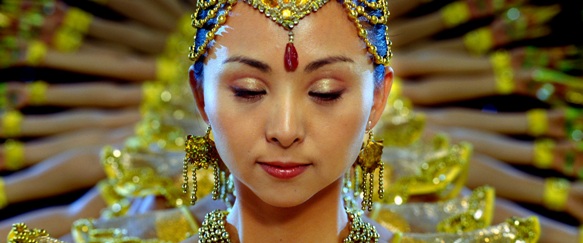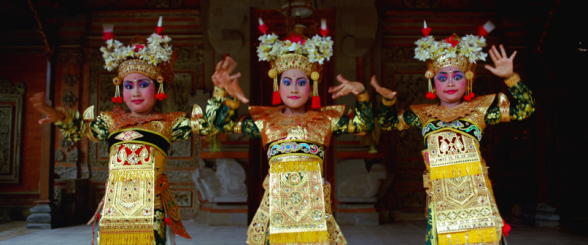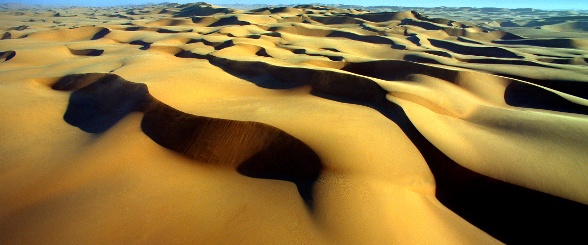The 7th Spirit Film Festival will take place from October 23 – 26, 2013 at the Tel Aviv Cinematheque. The festival presents films that focus on spirituality, personal growth and reflection on the human spirit, seeking to encourage dialogue and promote values of tolerance, equality and freedom. In addition to a large selection of films, there will be a New Age fair with an array of goods and information, workshops and lectures.

Opening the festival will be Samsara, directed by Ron Fricke. A stunning cinematic achievement, Samsara is suffused in images of rich color and detail, accompanied by an evocative soundtrack, creating a profound experience without a single word of text, either written or spoken. Samsara refers to the cycle of birth, death and rebirth, the endless dance in which all life participates. The non-narrative documentary was filmed over the course of four years in 25 countries. Shot entirely on 65mm and transferred through the highest resolution possible scanning process to 4K digital projection, the result is an immensely powerful visual experience.
Director Ron Fricke has a long history with non-narrative documentary, having been the cinematographer on Koyaanisqatsi (also known as Koyaanisqatsi: Life Out of Balance, 1982), directed by Godfrey Reggio with music composed by Philip Glass, perhaps the first film in this genre. Fricke went on to direct Chronos (1985), a film on the concept of time, with a soundtrack composed by Michael Stearns, a 42 minute piece which is the length of the film. Produced by Mark Magidson and written by Constantine Nicholas and Genevieve Nicholas, the Chronos creative team made Baraka in 1992. Fricke designed and built a 65 mm camera for Chronos, which had special motion control capabilities for slow motion and time lapse photography, which became signature motifs in the films to follow.

The absence of words, usually the purveyor of intent in documentaries, places the emphasis on the visual and sound elements of the film as revealing perspective and creating meaning. The strong colors, elaborate costumes and enigmatic smiles of young girls dancing in the opening scene gives way to a near abstraction of gray, so close at first I was not sure of what was being shown, then the line of sight opening up to reveal clouds of smoke and fragments of explosions, and finally revealing the fires of a volcano erupting from the mighty forge that is the earth. The soft contours of a sleeping child’s hands and face give way to the lined visage of old age, then the golden rays of sunset gleam on temples, gold amidst fields of green. Young boys in red robes cluster around monks bend carefully over a colorful sand painting, watching the images take form grain by grain.
One might take several paths through the film. The visual experience is intense, the kind that sweeps you away, flowing with it, letting the sound and images flow in and around your consciousness. One might engage in a dialogue with these images. When seeing the boys in the monastery I wondered: who are these boys? into what homes were they born? how did they come to live in a monastery, and how do they feel about this way of life?

Although the film encompasses five continents, it generates an atmosphere of intimacy by taking the time to focus on individuals as well as vast stretches of landscape or the dizzying patterns of cityscapes and mass production. Scenes of amazing beauty are juxtaposed with scenes that are severely distressing on many levels; often with a strong sense of a guiding hand that wants to convey a message with urgency bordering on obsession. One might concur or argue, yet one is not likely to remain unmoved.
A full program and listing of films can be found on the Spirit Film Festival website. Harsita and Anamika Eshel, founders of Lev Tahor, are the artistic directors of the festival, which is produced in collaboration with D’Plus Productions and with the cooperation of the Tel Aviv Cinematheque and the Tel Aviv Municipality.
Tel Aviv Cinematheque, 2 Sprinzak Street, Tel Aviv. 03- 6060800.





